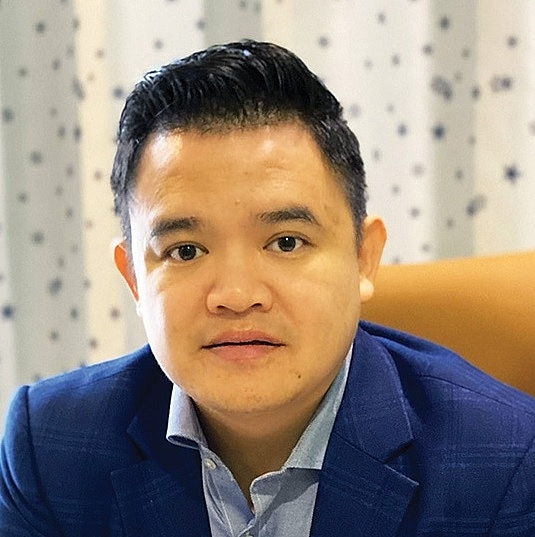Legal challenges for a flourishing healthcare sector
 |
| Managing director of ASL Law Firm Pham Duy Khuong |
According to a Nielsen survey from last autumn, health continues to be a top concern for Vietnamese citizens. Foreign investors have been aware of this increasing demand for healthcare services and followed up with mergers and acquisitions to contribute capital to local companies.
For example, the VinaCapital deal after divesting from Hoan My General Hospital has poured another $25 million into Tam Tri General Hospital, which owns a chain of four large private facilities in Danang, Nha Trang, Ho Chi Minh City, and Dong Thap, as well as a series of investments in pharmaceutical businesses.
In addition, VinaCapital and Deutsche Bank’s DWS Vietnam Fund also spent $20 million holding 44 per cent of Hoan My’s capital.
Japanese investor Taisho wants to spend more than VND3.4 trillion ($148 million) to buy an additional 21.7 per cent stake in Hau Giang Pharmaceutical to increase ownership to 56.69 per cent.
Although the potential of the healthcare sector is something investors enjoy, there are still obstacles that prevent them from making decisions because of complicated legal framework that slows down procedures to facilitate pouring capital into the sector.Once the investment procedures are made simpler and more convenient, optimising investment, maximising efficiency, and allocating risks appropriately, Vietnam will have a competitive advantage to become an attractive healthcare investment destination.
Professional medical advisor Dr. Dilshaad Ali spoke at a recent seminar in Ho Chi Minh City on what the local healthcare sector needs to do to attract investment. He noted that Vietnam has a policy of strongly luring in private investors, boosting tech transfer and co-operation to attract investment capital for modern medical infrastructure, as well as the training of doctors to meet the demands. However, up to now, investment in the healthcare sector has not yet been commensurate.
The facts show that the Vietnamese legal framework for investing in the healthcare sector is still not very clear or specific, especially regulations on divestment, or using profits from funding in hospitals, to be able to share risks with financiers that makes them afraid to put money into this field.
Moreover, in addition to the legal framework, to attract investment of external resources into health or public-private partnerships (PPP), Vietnam should also expand the coverage of health insurance, especially for private health clinics that meet requirements.
Although the form of PPP investment in the healthcare sector has been discussed for over 10 years by the government to help the private sector develop to help reduce overload at public facilities, the law is not clear, and it cannot be implemented. Vietnam’s PPP investment environment is currently fraught with difficulties for domestic investors and not suitable for foreign investors. The reason is that investors struggle to actively prepare projects. Cam Pha General Hospital project in the northeastern province of Quang Ninh is just one example.
When investors conduct the survey everything seems feasible, but when they start to carry out tasks, there are problems in state assets such as human resources, land, and branding, leading to difficulties in determining the contribution.
In addition, the PPP appraisal process is often prolonged and many projects are therefore ineffective, and there are no clear regulations for two types of public hospitals and PPP hospitals within the scope of services.
Prices for Vietnam’s healthcare services are too low. Low prices ensure private health systems are difficult to develop; for the public health system to supplement the budget, patients still have to spend money to ensure their medical examination and treatment. With such background, foreign investors are very afraid of the risk of losing capital.
Particularly, there are no guidelines in the preparation and control of PPP healthcare projects, no financial support for such projects, no project preparation funds, no gap compensation funds, and no government guarantees.
If Vietnam can eventually improve those restrictions, healthcare can absolutely become a fertile sector, attracting proactive participation of both domestic and international investors.
What the stars mean:
★ Poor ★ ★ Promising ★★★ Good ★★★★ Very good ★★★★★ Exceptional
Related Contents
Latest News
More News
- Balance to find with overtime reform (March 24, 2022 | 11:33)
- ASL Law managing director among top 100 lawyers in Vietnam (March 12, 2022 | 15:42)
- The role of RCEP in economic recovery of the region (February 17, 2022 | 10:22)
- Supporting policies in Vietnam’s social insurance (September 27, 2021 | 17:12)
- PPP law builds on transparency and proper process (August 02, 2021 | 20:30)
- ASL Law introduces Legal Handbook amid COVID-19 times (July 17, 2021 | 09:47)
- Directions for FIEs and employees in benefits disputes (June 03, 2021 | 22:07)
- The keys to M&A attraction (April 28, 2021 | 16:22)
- Building regulations to secure workers’ rights and interests (April 05, 2021 | 14:27)
- Managing partner of ASL Law Firm ranked top 100 lawyers in Vietnam (March 09, 2021 | 10:34)

 Tag:
Tag:




















 Mobile Version
Mobile Version